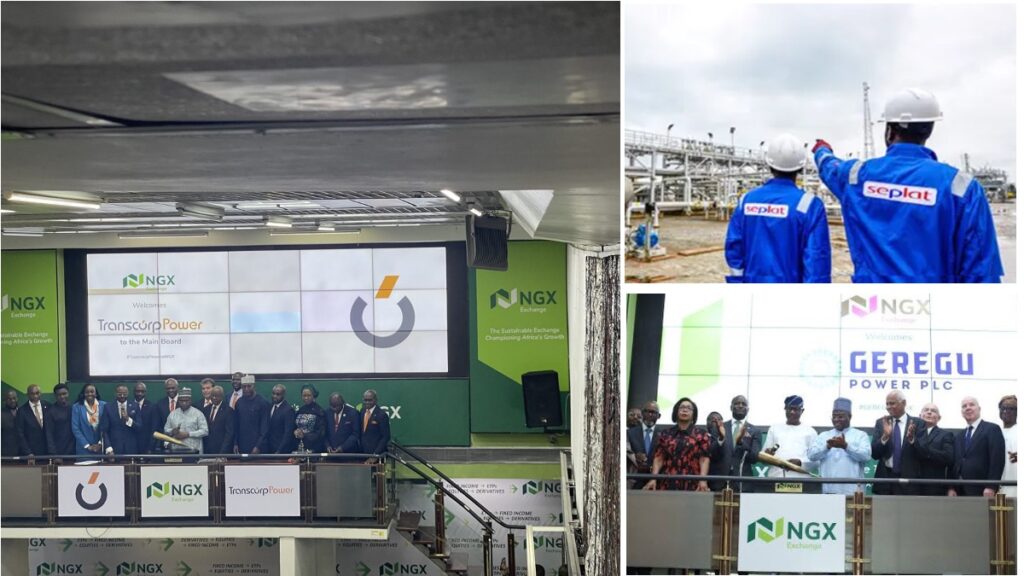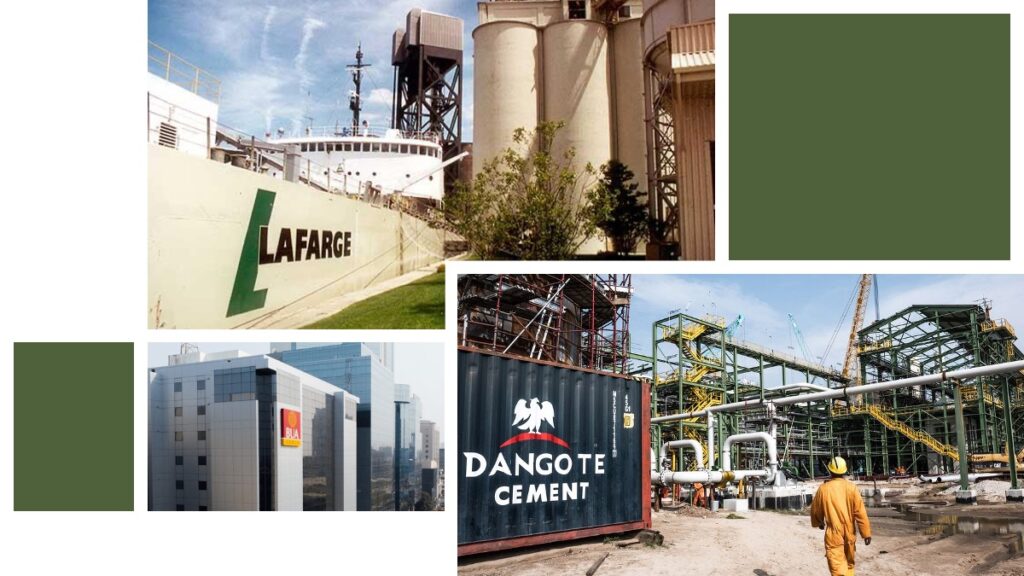Nigeria’s proposed ₦4 trillion infrastructure investment for 2025 stands as one of the most ambitious economic strategies in the country’s recent history, marking a critical step towards addressing the infrastructural deficits that have hampered growth for decades. This massive allocation underscores the government’s recognition of infrastructure as the backbone of economic development, with the potential to catalyze various sectors, enhance productivity, and create millions of jobs. The initiative is a direct response to the pressing need to improve Nigeria’s ranking in global competitiveness while boosting investor confidence in its economic stability.
The infrastructure agenda is expected to have far-reaching effects on the country’s GDP, potentially spurring annual growth rates by enabling smoother business operations, reducing costs of production, and facilitating trade. For instance, improved transport networks could lead to reduced logistics costs, while investments in energy infrastructure are poised to address Nigeria’s chronic power shortages, providing industries and households with more reliable electricity. By aligning these investments with the Sustainable Development Goals (SDGs), the government also seeks to address urban and rural disparities, enhance quality of life, and foster a more inclusive economy.

Key sectors such as energy, construction, and materials are set to be the prime beneficiaries of this spending initiative. The energy sector will likely see investments aimed at expanding electricity generation capacity, diversifying into renewables, and upgrading transmission networks. Meanwhile, the construction and materials sectors will benefit from heightened demand for building materials, particularly cement, steel, and other essential supplies, driven by large-scale projects such as housing schemes, road construction, and rail expansions.
This infrastructure push also aims to leverage public-private partnerships (PPPs), signaling a strategic move to involve the private sector in financing and executing critical projects. This collaborative approach not only reduces the financial burden on the government but also brings in private-sector expertise, ensuring more efficient delivery of projects. With this combination of public funding and private sector participation, the ₦4 trillion infrastructure plan is set to usher in a new era of economic transformation, offering vast opportunities for companies and investors alike
The Infrastructure Push: What It Covers
The infrastructure push emphasizes a multi-faceted approach to national development, targeting critical sectors with transformative potential. With ₦4 trillion earmarked for these projects, the initiative represents the Nigerian government’s most significant infrastructural investment to date, aiming to bridge long-standing gaps that have hindered economic growth. This ambitious plan is designed to create a ripple effect across the economy by enhancing connectivity, fostering industrial growth, and improving the quality of life for millions of citizens.
- Energy Infrastructure
The government has prioritized the energy sector, recognizing it as the backbone of economic productivity. Investment will focus on increasing power generation capacity, expanding transmission networks, and exploring renewable energy sources like solar and wind. These efforts aim to address Nigeria’s persistent power deficit, which has long been a major bottleneck for industrialization and social development. In addition to meeting domestic energy demands, these projects also have the potential to enhance export opportunities through regional energy partnerships. - Transport and Road Networks
Transport infrastructure is another key focus, with substantial funding allocated to highways, rail systems, and urban transit development. The plan includes rehabilitating existing road networks to ensure safer and more efficient transport of goods and people across the country. Investments in rail systems, such as high-speed and freight trains, aim to reduce reliance on road transport and lower logistics costs for businesses. Furthermore, the development of urban transit systems will alleviate congestion in major cities, fostering smoother mobility and economic activity. - Public Works Projects
Public works, including housing, water systems, and healthcare infrastructure, are critical components of this plan. Housing projects will target both urban and rural areas, addressing the growing demand for affordable homes and reducing overcrowding in cities. Investments in water systems aim to ensure sustainable access to clean water for households and industries, while healthcare projects will focus on upgrading hospital facilities and expanding access to quality care. Collectively, these projects will significantly enhance living standards and promote inclusive growth across Nigeria.
Public-private partnerships (PPPs) are central to the strategy, with the government actively courting private sector participation to finance and execute these ambitious projects. This collaborative approach not only mobilizes additional resources but also brings in technical expertise and operational efficiency, ensuring timely and cost-effective project delivery.
Key Sectors Positioned to Benefit
The infrastructure plan offers vast opportunities for key industries that are directly involved in construction, energy production, and material supply. Companies in these sectors are uniquely positioned to capitalize on the demand created by the government’s spending initiatives.
A. Energy Sector

- Geregu Power Plc (GEREGU)
Geregu Power Plc stands out as a leading force in Nigeria’s energy generation landscape. Its established reputation for delivering large-scale projects positions it as a key partner for the government’s power expansion goals. By collaborating on projects to upgrade grid infrastructure and expand renewable energy capacity, Geregu Power is likely to drive substantial growth while addressing the country’s electricity challenges. - Seplat Energy Plc (SEPLAT)
Seplat Energy, a dominant player in the oil and gas industry, is set to benefit from infrastructure spending focused on energy production. The company’s existing capacity in gas-to-power initiatives aligns with the government’s renewable energy agenda. Moreover, its expertise in exploration and production equips it to contribute significantly to national energy security and sustainability efforts. - Transcorp Power (TRANSCORP)
Transcorp Power’s investments in thermal power plants and its capacity for scalable operations make it a pivotal player in meeting Nigeria’s rising electricity demand. As one of the nation’s largest energy providers, it is well-positioned to contribute to grid stability and expand its market share by participating in public-private energy projects. - Ardova Plc (ARDOVA)
Ardova Plc, a leading distributor of petroleum products, is diversifying into renewable energy solutions. Its strategic pivot towards clean energy projects, coupled with its robust distribution network, aligns perfectly with the infrastructure plan’s energy goals. This dual focus positions Ardova as both a conventional and alternative energy provider, catering to a wide range of infrastructural needs.
B. Construction and Materials Sector

- Dangote Cement Plc (DANGCEM)
As the largest cement producer in Nigeria, Dangote Cement is set to play a crucial role in meeting the demand for construction materials. The company’s expansive production capacity ensures it can supply the raw materials needed for roads, bridges, and housing projects. Its strategic investments in logistics and distribution will also facilitate timely delivery, solidifying its leadership in the market. - Lafarge Africa Plc (WAPCO)
Lafarge Africa’s proven track record in supporting large-scale construction projects makes it an indispensable partner for infrastructure initiatives. Its advanced production technology and quality assurance measures ensure that it can meet the growing demand for cement in both urban and rural projects. With a focus on sustainable building solutions, Lafarge aligns closely with the government’s goal of achieving environmentally friendly development. - BUA Cement Plc (BUACEMENT)
BUA Cement’s strategic location of plants and distribution centers across Nigeria positions it to efficiently cater to construction needs in various regions. Its ongoing capacity expansion projects signal readiness to meet the surge in demand driven by infrastructure spending. By focusing on cost-efficient production, BUA Cement ensures competitive pricing, which is critical for large-scale projects.
How These Stocks Align with Infrastructure Goals
Each company’s operational focus and capabilities are directly aligned with the Nigerian government’s ambitious infrastructure agenda:
- Energy Sector Stocks: By expanding electricity generation, improving grid stability, and exploring renewable energy options, these companies address foundational energy challenges that affect every sector of the economy. Their involvement in government-backed initiatives ensures a stable pipeline of contracts and long-term growth.
- Construction and Materials Stocks: As enablers of physical infrastructure, companies like Dangote Cement, Lafarge Africa, and BUA Cement will be at the forefront of delivering essential materials. Their established supply chains and production capabilities ensure that the infrastructure projects can proceed without material delays or cost overruns.
By aligning their operations with the government’s priorities, these companies stand to gain not just immediate financial benefits but also enhanced reputational value, solidifying their positions as industry leaders in Nigeria’s development narrative.
Investment Outlook for 2025
Financial Gains
Infrastructure contracts represent significant revenue potential for companies across energy, construction, and materials sectors. These contracts often include large-scale, multi-year projects that provide predictable income streams, thereby boosting company earnings and stock performance. Additionally, firms with strong operational capacity, such as Geregu Power or Dangote Cement, are likely to secure prominent roles in government projects, translating into sustained revenue growth. Investors should anticipate a ripple effect as these companies channel profits into further expansions, creating a cycle of reinvestment and growth.
Risks
Despite the potential benefits, there are notable risks associated with infrastructure investments. Delays in policy implementation, stemming from bureaucratic inefficiencies or political instability, could slow project execution and affect financial outcomes. Regulatory challenges, such as shifting government priorities or environmental compliance mandates, may also impact project timelines and profitability. Furthermore, reliance on public-private partnerships introduces an element of unpredictability, as funding shortfalls or disagreements between stakeholders could derail planned initiatives. Investors must remain vigilant, monitoring government policies and corporate communications to mitigate these risks.
Growth Potential
The long-term growth outlook for infrastructure-linked sectors remains exceptionally robust, driven by Nigeria’s increasing urbanization and industrialization. Energy companies are poised to benefit as power demand surges alongside economic expansion, while construction firms will see steady material demand for housing, roads, and public works. Moreover, advancements in technology and sustainability will open additional growth channels, allowing companies to innovate and capture emerging opportunities. For investors with a long-term horizon, the infrastructure sector offers a unique blend of stability and growth potential, making it an attractive area for portfolio diversification.
Recommendations
- Focus on Direct Beneficiaries
Investors should prioritize stocks of companies directly involved in government-backed infrastructure projects. Firms like Geregu Power, Lafarge Africa, and Ardova Plc are expected to play critical roles in Nigeria’s energy and construction sectors, making them ideal investment candidates. By targeting companies with established track records in delivering large-scale projects, investors can reduce uncertainty and maximize returns. - Stay Updated on Announcements
Staying informed about government contract awards, policy updates, and public-private partnership agreements is crucial for capitalizing on new opportunities. Regular monitoring of official announcements and corporate press releases will enable investors to identify emerging trends and pivot their strategies accordingly. Furthermore, tracking the financial health and operational readiness of key companies will provide valuable insights into their ability to execute large projects successfully. - Portfolio Diversification
A balanced portfolio combining energy, construction, and materials stocks is essential to mitigate sector-specific risks while capturing the full scope of infrastructure-driven growth. Energy firms like Seplat Energy and Transcorp Power can offer stability through long-term energy contracts, while construction material providers such as Dangote Cement and BUA Cement can deliver growth tied to urbanization trends. Diversification also reduces exposure to sector-specific volatility, ensuring a more resilient investment strategy.
Conclusion
Nigeria’s ₦4 trillion infrastructure initiative marks a pivotal moment in the nation’s economic development journey. By addressing critical gaps in energy, transport, and public works, this ambitious spending plan has the potential to unlock unprecedented growth across multiple sectors. For the energy industry, the focus on expanding power generation and renewable energy aligns with long-term goals of industrialization and sustainability. Similarly, the construction and materials sectors are poised to thrive on increased demand for building materials, driven by a surge in housing, road construction, and urban development projects.
For investors, the infrastructure boom presents a golden opportunity to tap into Nigeria’s growth story. Stocks in companies like Geregu Power, Dangote Cement, and Lafarge Africa offer strong value propositions, supported by their operational scale, market leadership, and alignment with government priorities. While risks such as regulatory delays and funding gaps exist, a strategic investment approach focusing on diversification and timely market analysis can mitigate these challenges.
In conclusion, Nigeria’s infrastructure agenda is not just a spending plan—it is a blueprint for national transformation. For businesses, it opens doors to expansive growth opportunities; for investors, it provides a pathway to significant returns. As the nation builds its future, those who strategically align their investments with this transformative agenda stand to reap long-lasting rewards.
